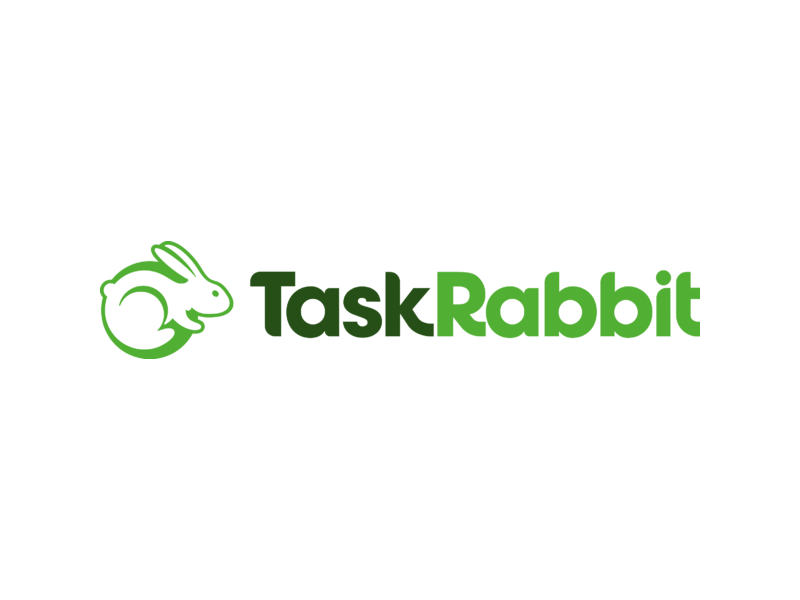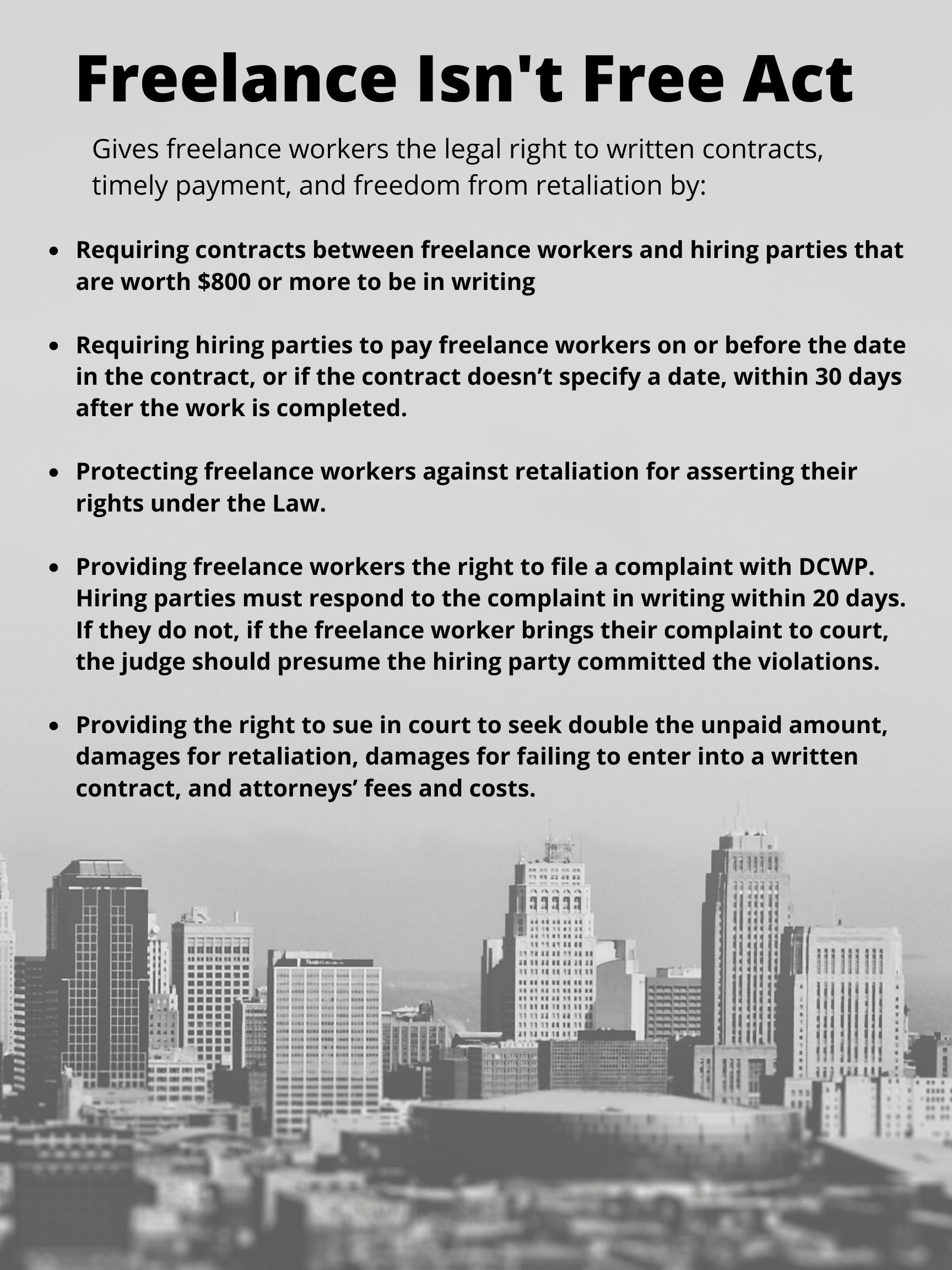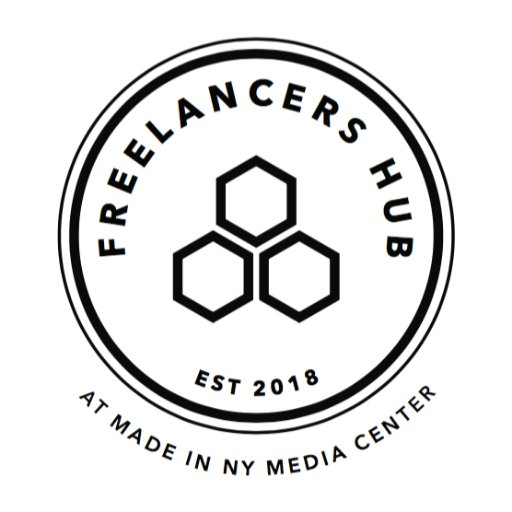
The Growing Gig Economy
“Gig economy work is any kind of work that is performed under
alternative work arrangements, meaning alternative to standard
employee-employer relationship.”
-Maria C. Figueroa, Director of Labor and Policy Research at the Worker Institute
Today, many companies are turning to gig workers to complete a job or task for them.
The United States’ gig-economy is growing, with 57 million Americans now freelancing
George Gonos, an adjunct professor at Florida International University, has two definitions of the gig economy.
Narrow Definition- People who obtain short-term jobs through online platforms. It could be professional work like freelancing in journalism, or it could be driving or delivering packages or food.
Broader Definition- There are more categories of workers in the gig economy, not just people who go online to find jobs. These can include people who do temp agency work, independent contractors, part-time workers, adjunct professors and farm workers.
Alternative Workforce by Industry
“Digitally mediated employment is the fastest growing segment of the gig economy.”
-Maria C. Figueroa, Director of Labor and Policy Research at the Worker Institute
Digital platforms like Uber, TaskRabbit and Freelancer
make it easier for people to find freelance work




“Any member can post a project or job and choose from freelancers to complete the work.”
-Sebastián Siseles, VP of International at Freelancer.com
Freelancer.com has 4.7 million freelancers from the United States on their site, said Siseles, and their largest numbers of freelancers come from not only the U.S., but countries like India, Pakistan, Bangladesh, Philippines and Brazil.
The areas of work most demanded on Freelancer.com are IT, Design, Marketing & Communications, Siseles said, but they have a diverse group of freelancers on their site, ranging from lawyers and accountants to geologists and programmers.
Freelancer.com has a unique milestone payment system, according to Siseles. Once an employer posts a project on the site and awards this job to a freelancer, the freelancer can request a Milestone Payment, which the employer can create by depositing funds. These funds will be held by the website until the employer is satisfied and tells Freelancer.com to release the Milestone Payment to the freelancer.
“It’s probably the most secure payment system out there,” said Siseles. He said it’s better for a freelancer to work through their website rather than on their own because it’s the safest way for them to get paid.
Offline, things are very different.
Wage Theft
With the U.S.’s increasing gig-economy, the increasing reports of nonpayment for freelancers is
becoming a problem. Freelancers often fall victim to wage theft.


“Sometimes it would take up to four months after filing an assignment to see a paycheck from certain companies. Not getting paid on time takes a huge toll on your well-being and your finances. Imagine picking up a busy week of shifts at a restaurant and then they pay you half a year later for the labor you provided.”
-Jinnie Lee, Former Freelance Editor
“I am even still chasing down a few late payments right now. It can be frustrating but unfortunately it’s something that you have to be prepared for as a freelancer since it’s pretty common to be chasing down late payments.”
-Austen Tosone, Former Freelance Writer & Editor
“Many workers are vulnerable because they’re young, because they don’t have access to legal resources, because they’re an immigrant and are unaware of laws or threatened with arrest by custom and immigration,” said Gonos.
Missclassification
On top of stolen paychecks or late payments, workers often experience being labeled as an
independent contractor when they’re doing the same work as a full time employee.
“Employers are labeling people independent contractors, they’re calling these things “gigs,” when they want to have all the power but they don’t want the responsibilities that go along with it,” said Gonos.
Gonos also described adjunct professors, like himself, very often not having health insurance, not making a professional salary, and not having professional “goodies” that real professors often get like money to help with their careers.
Despite these lack of benefits, Gonos said colleges and universities are hiring more and more adjuncts to do their teaching. According to The American Interest, adjunct professors teach two-thirds of all classes in many colleges today.
“Being an adjunct in the university arena is like being a poor farm worker,” Gonos said, “You’re going from place to place and trying to piece together enough work to pay your bills.” He also said that if students knew just how little their adjunct professors were being paid to teach a course…they’d be shocked.
What’s being done to address
the issues affecting this growing workforce?
The Freelance Isn’t Free Act is the first law passed that gives freelancers in New York City
protections that ensure they won’t have to experience wage theft.

“Data has shown that freelancers experience wage theft at unacceptably high rates, when their hiring parties fail to pay what their contract required,” said Melissa Barosy, Press Secretary of New York City Department of Consumer Affairs.
Therefore, Barosy said NYC decided there was no reason for freelancers to not get paid for their work and the city passed the Freelance Isn’t Free Act, the first law of its kind in the country. With this law, the 400,000 freelancers living and working in New York City are receiving protections unique to the rest of the world.
“The Freelance Isn’t Free Act was a law created in New York to address the problem of companies taking advantage of freelancers and independent contractors,” said Andrew Gerber, one of the founding members of the KG Law Firm. He said companies have people do work without paying them because they know it’s often very expensive and intimidating for independent professionals to have to sue a big company to get the money they were owed.

Gerber took on a case last year involving a well known street artist named Eelco. He was hired by this restaurant in New York to create a mural and, when he completed it, they refused to pay him. Eelco retained Gerber’s law firm and they filed a lawsuit. The restaurant fought it for a year and their current attorneys have filed a motion to withdraw council because the restaurant was unable to pay their own lawyers. The case is still pending, but Gerber hopes to get a judgment in their favor.
“There must be thousands of aggrieved freelancers that have these problems on a daily basis and maybe aren’t aware that this law exists here in New York and aren’t aware that our firm handles them,” said Gerber.
One resource that freelancers in New York have available is the Freelancers Hub in Brooklyn.
The Freelancers Hub provides free coworking, educational workshops, legal and financial
clinics, benefits assistance, and community events. The Hub is a partnership between the city
and the Freelancers Union, a nonprofit that promotes advocacy for freelancers of all sorts.
The Freelancers Union was able to help pass the Freelance Isn’t Free Act in New York City, said
Stephanie Alvarado, Freelancers Hub Program Director.

There is existing and pending legislation involving protections for freelancers in other parts of the United States. Barosy said New Jersey is currently considering a law similar to New York City’s Freelance isn’t Free Act. Since more New Jersey residents are choosing to freelance with companies, state lawmakers are proposing labor regulations that will help make sure freelancers are treated fairly and are paid on time.
Figueroa said that the legislature in California recently decided to adopt the AB5 Bill, which established the ABC test. “That test makes it harder for an employer to misclassify you as a freelancer or independent contractor when you’re actually an employee under the law,” she said. If the test results in the workers actually being employees, the employer has to pay the worker at least the minimum wages and they have to provide them with benefits and insurance.
“California, New York and New Jersey are state leaders in labor and employment laws and policies,” Figueroa said, “I would say if they explore policies like these, other states may follow.”
Although Figueroa thinks the Freelance Isn’t Free Act should have stronger enforcement mechanisms so that authorities are making sure that the law is being complied with, she also believes the act is a good model. “It would be great to increase the Freelance Isn’t Free Act from New York City to the entire state of New York as a whole,” she said.
Gonos said we haven’t worked hard enough in revising our laws to protect gig workers, but there are many people involved in those efforts. “I’m right now helping to write a kind of legislation that would protect temp agency workers who are often badly exploited, making a lot less money for doing the same kind of work other people do,” he said.
